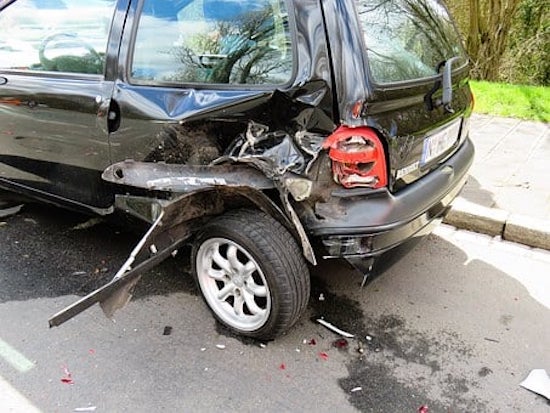Soreness after a car accident is a common experience, as the body absorbs the impact and may be jolted or strained in unexpected ways. The duration of soreness can vary significantly based on the severity of the accident and an individual’s physical condition. Typically, one might expect muscle soreness to begin within a few hours or up to a day after the collision, known as the onset of Delayed Onset Muscle Soreness (DOMS).
The intensity and duration of soreness depend on several factors, including the force of the impact, the position of one’s body at the time of the accident, and pre-existing health conditions. In most minor to moderate accidents, soreness can last from a few days to a couple of weeks. However, it’s essential for individuals to monitor their pain levels: persistent or worsening discomfort could indicate more severe injuries that require medical attention.
Medical professionals advise that while some soreness is normal, there are ways to facilitate recovery. Rest, ice, compression, and elevation, commonly referred to as the RICE protocol, can be helpful in the first days following the accident. Additionally, seeking medical evaluation after an accident can ensure that any less apparent injuries are identified and treated properly, potentially reducing the duration of soreness and improving overall recovery outcomes.
Understanding Soreness After a Car Accident
Soreness following a car accident is a common physical response to the sudden and forceful impact experienced during such incidents. It often reflects the body’s attempt to heal and recover.
Physical Response to Trauma
When involved in a car accident, the body is subjected to abrupt movements and forces that can strain muscles and ligaments.
These responses include:
Inflammation: A natural healing process that can cause soreness.
Endorphin Release: Body’s immediate reaction to mask pain, followed by potential soreness as it subsides.
Common Duration of Soreness
The duration of soreness can vary widely, but typically:
Short-Term Soreness: May last a few days to a week.
Prolonged Soreness: Can persist for weeks or even months, depending on various factors:
Factors Influencing Recovery Time
Recovery time after a car accident can vary widely among individuals. It’s dependent on several factors such as the severity of the accident, the person’s health, and the efficiency of treatment received.
Severity of the Accident
The intensity of the car crash significantly determines the extent of the injuries, and consequently, the duration of soreness. A high-impact collision generally results in more severe injuries, which may lead to a longer recovery period. For example, a minor fender bender might result in soreness that resolves within a few days, whereas a major collision could lead to injuries requiring months of healing.
Individual Health Conditions
An individual’s pre-existing health conditions play a crucial role in the recovery process. People with robust health and youth on their side typically recover faster than those with chronic diseases or older individuals. For example, someone with osteoporosis may experience longer-lasting soreness post-accident due to the brittleness of their bones.
Treatment and Rehabilitation
The kind of treatment and rehabilitation a person undergoes after a car accident affects the recovery timeline. Immediate and consistent medical care, coupled with a planned rehabilitation program, can significantly reduce the duration of soreness. Whereas, delayed or inadequate treatment might prolong the recovery period.
For example:
Immediate Care: Receiving prompt medical attention post-accident for diagnoses like whiplash can expedite recovery.
Physical Therapy: A structured physical therapy program tailored to the individual’s injuries can aid in a quicker return to normalcy.
Follow-up: Regular follow-up visits with a healthcare provider ensure that the recovery is on track and any adjustments to treatment are made swiftly.
It should be noted that consulting with a car crash attorney can also influence the treatment and rehabilitation process, as they can facilitate the acquisition of necessary resources for optimal care.
When to Consult a Professional
In the aftermath of a car accident, individuals must be attentive to their health and legal rights. Certain situations necessitate the expertise of professionals to ensure adequate medical recovery and to safeguard legal interests.
Medical Evaluation
After a car accident, individuals should immediately seek medical attention if they experience any of the following symptoms:
Persistent or worsening pain
Difficulty with mobility or performing daily activities
Signs of neurological issues (e.g., dizziness, headaches, memory loss)
Visible injuries that do not improve or worsen over time
Healthcare professionals are equipped to perform comprehensive evaluations and prescribe appropriate treatments. Patients are encouraged to follow through with recommended follow-up appointments to monitor their progress.
Legal Advice
In certain cases, securing legal counsel post-accident is essential. Individuals should consider contacting a car crash attorney if they encounter:
Disputes over fault or insurance claim denials
Offers of settlements that do not cover all medical expenses or car repairs
Uncertainty about the legal process or their rights
The need to negotiate with insurance companies
A seasoned car crash attorney can provide clarity on legal options and advocate on the individual’s behalf. It is crucial to consult an attorney early to ensure that legal actions are taken within the applicable statutes of limitations.
Long-Term Considerations
When assessing the long-term effects of soreness after a car accident, one must consider the potential for chronic conditions and the broader effects on daily activities.
Chronic Pain and Complications
After a car accident, individuals may experience an onset of chronic pain which can last for several months to years. A common long-term condition is post-traumatic osteoarthritis, which can develop after joint injuries and cause stiffness and persistent discomfort. The likelihood of developing chronic pain is influenced by the severity of the initial injury, age, and overall health.
Fibromyalgia is another potential complication, characterized by widespread musculoskeletal pain.
Myofascial pain syndrome, involving persistent pressure on sensitive points in the muscles, can also arise.
Impact on Daily Life
The enduring effects of a car accident can significantly alter one’s daily life, affecting routine activities and work responsibilities. Soreness can impede the following:
Basic Tasks: Reduced mobility may hinder basic activities like dressing, cleaning, or shopping.
Professional Life: Chronic soreness can lead to missed work days and decreased productivity.
Mental health can also be affected, as ongoing pain might facilitate the development of:
Depression: Prolonged discomfort can lead to feelings of hopelessness.
Anxiety: Concerns about health and finances can heighten anxiety levels.
It’s crucial for individuals to seek appropriate medical care and rehabilitation to manage and mitigate these long-term considerations.



Speak Your Mind